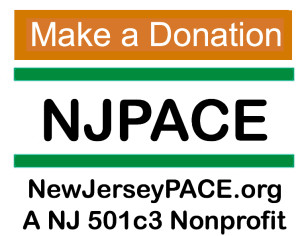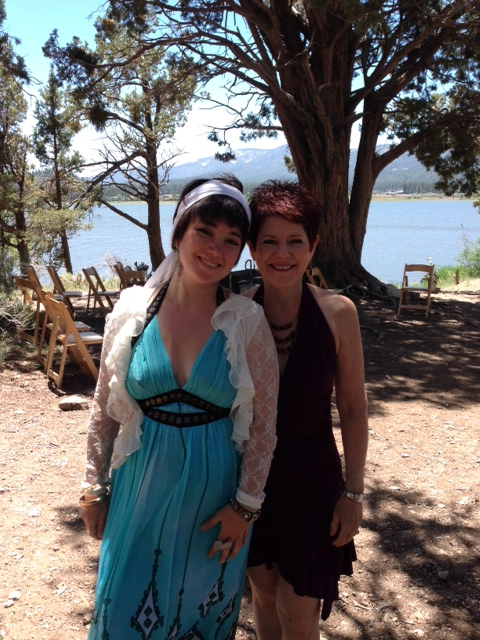Jonathan Cloud August 4th, 2016
Why we all need to stand up and be counted
The mere fact that Donald Trump has been designated the Republican nominee for President should give us all cause for concern. No one with such a clearly authoritarian personality has ever been a plausible candidate for the most powerful office in the world. The campaign that we see unfolding before us is not a reality show, but a sobering reality. It is not unreasonable that we should ask ourselves what would happen if we were to stand by and not speak out against it.
Continue Reading »
Jonathan Cloud August 5th, 2014
See it live at http://NJPACE.CauseVox.com.
 Developing our crowdfunding campaign is giving us an extraordinary opportunity to explore using PACE to revitalize New Jersey communities. By itself, PACE is an innovative business model that creates jobs and economic development while providing the ultimate tool to finance energy efficiency and renewable energy projects on private properties. But leveraging PACE for community development is where the real payoff is, that is to say, for the benefit of the community as a whole.
Developing our crowdfunding campaign is giving us an extraordinary opportunity to explore using PACE to revitalize New Jersey communities. By itself, PACE is an innovative business model that creates jobs and economic development while providing the ultimate tool to finance energy efficiency and renewable energy projects on private properties. But leveraging PACE for community development is where the real payoff is, that is to say, for the benefit of the community as a whole.
Continue Reading »
Jonathan Cloud June 22nd, 2014

Jonathan Cloud November 30th, 2012
This item first appeared in Dead River Journal, 11/29/2012:
We know that the new economic and ecological realities we face require us to do something different in business, which in some cases also means doing business differently.
Certainly it’s possible to use a conventional business model to manufacture and install solar panels, build windfarms, etc., and we certainly need these kinds of things “at scale,” as they say, sufficient to offset the energy we get from coal, oil, and nuclear. But other kinds of businesses — local, community-based businesses focusing on food, energy conservation, community banking, and other elements of local “economic, social, environmental, and cultural development” — these it seems need a different approach to doing business altogether.
For one thing, getting people to invest in local projects is surprisingly difficult under the conventional business model. It’s just much easier, and assumed to be much safer and more profitable, to “diversify your investments” by putting them in mutual funds, bonds, and publicly-traded companies. What we need are local investments that are either super-secure, or where the risk can be spread over many different enterprises and investors.
Focusing attention on the local economy is one of the central tenets of “financial permaculture,” a movement that is growing out of the tradition of permaculture derived from the work of Bill Mollison and David Holmgren in Tasmania in the 1970s.
Continue Reading »
Jonathan Cloud January 26th, 2011
This little survey of the state of the sustainability movement going into 2011 would not be complete without looking further at policy and practice in a number of increasingly problematic areas, from water, to energy, to agricultural runoff, to education, and so on. As always, the rhetoric far outpaces the reality. But it’s important to know where each of these are, so we know where we’re starting, and what we need to move forward.
Despite the failure of climate change legislation to pass the Senate and become law, the Obama administration remains clear that the problem is an urgent one. In a speech on September 20, 2010, Education Under Secretary Martha Kanter led off the “Sustainability Education Summit” with the following:
Continue Reading »
Jonathan Cloud December 20th, 2010
As soon as I wrote the original post, of course, I started discovering new signs of our times that are not adequately reflected in my earlier assessment. Let’s consider a few examples, and see what conclusions we can draw about where we are in the process, and where we might be going from here.
Continue Reading »
Jonathan Cloud December 19th, 2010
In the Spring 1990 issue of In Context — which described itself as “A Quarterly Journal of Humane Sustainable Culture” — Robert Gilman described the state of the sustainability movement in his time, and I thought it would be interesting to review this and reflect on where we are today. (See “Sustainability: The State Of The Movement,” in Sustainability (IC#25), Spring 1990, Page 10.)
Continue Reading »
Jonathan Cloud June 14th, 2009
After all the literature and public policy discussion and decision-making of the past 50+ years, it is hard to believe that there is still an industry – and a lobby – advocating for the expenditure of vast sums of money for the use of “controlled” nuclear reactions anywhere on this planet, let alone in the densely-populated Northeast.
But nuclear advocates have found new hope in the argument that nuclear power is “carbon-free.” New organizations have been formed to promote nuclear as “clean, affordable, and safe.” Continue Reading »
Jonathan Cloud November 3rd, 2008
I’ve just returned from a five-day workshop in Hohenwald, TN, a remarkable and inspiring event that sought to provide both an introduction to “financial permaculture” and the launch of several new enterprises – including a green incubator – in rural Lewis County (population <15,000).
Continue Reading »
Jonathan Cloud October 12th, 2008
There’s not much good news in the slow-motion global market crash we’ve witnessed over the past couple of weeks, but what is positive is the growing recognition that what matters is not the mostly fictitious Wall Street economy of credit default swaps and mortgage-backed securities but the “real” economy and the disastrous consequences of deregulation for the folks on Main Street. The fact is, as NYU economist Nouriel Roubini has pointed out, ordinary people have pretty much run out of money, stopped buying cars and homes, watched their retirement savings get cut in half, and begun to pull whatever they have left out of the stock market. We are witnessing a worldwide panic that will not be halted by Wall Street bailouts or technical manipulations of the money supply; we need fundamental reform of the economic system, and a reinvestment in infrastructure, jobs, and sustainable energy and other technologies.
Continue Reading »

